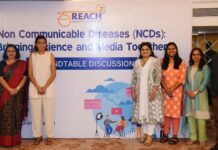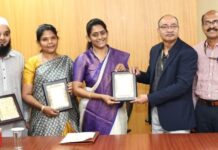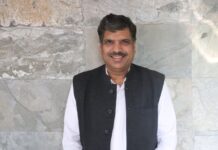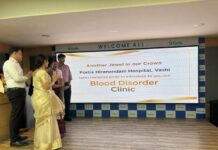Dhaka, September 12, 2014 – WHO and partners today stressed the need for a comprehensive and coordinated response to address the challenges of Autism Spectrum Disorders (ASD) in WHO’s South- East Asia Region. This was deliberated at an initiative launched by the Ministry of Health and Family Welfare, Government of Bangladesh, supported by the World Health Organization.
The initiative was launched at a side event held during the ongoing Sixty-seventh Session of the WHO Regional Committee for South-East Asia.
Autism spectrum disorders are a complex medical condition which comprise a range of developmental disorders. ASDs are characterized by lack of language development, impaired social communication, hypersensitivity to sensory stimulation, repetitive mannerisms and restricted interests. These, in turn, affect, a persons health, social, educational and economic functioning
While there is no proven cause for ASDs, there is growing evidence that these could be due to a gene-environment interaction, and that a genetic predisposition combines with some, as yet unknown external environmental factors, which cause ASD. However, no clear genetic defect or universally applicable environmental factors have been identified.
“We must empower families and communities with information and services to create a more inclusive world for children who suffer from ASD” said Dr Poonam Khetrapal Singh, WHO Regional Director for South-East Asia. “There is an urgent need to develop innovative ways and embed appropriate interventions into health systems to reach the affected”.
The side event aimed to move forward an international partnership of Member States, nongovernmental organizations, international organizations and institutions, towards a Global initiative on ASD and other neurodevelopmental disorders. The partnership would work towards a more inclusive and integrated global community through enhanced services and programmes for persons suffering from ASD.
CCI Newswire





















